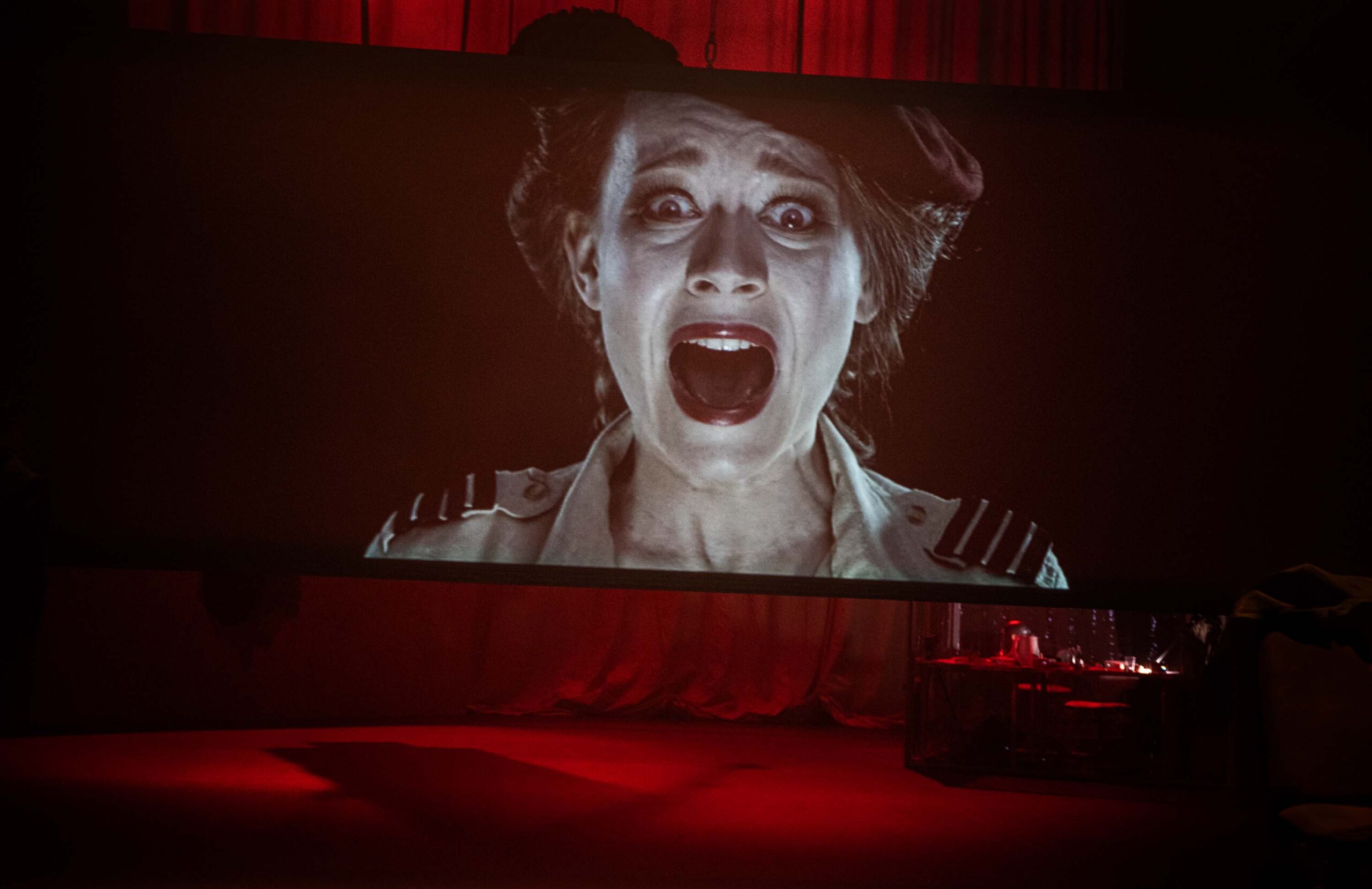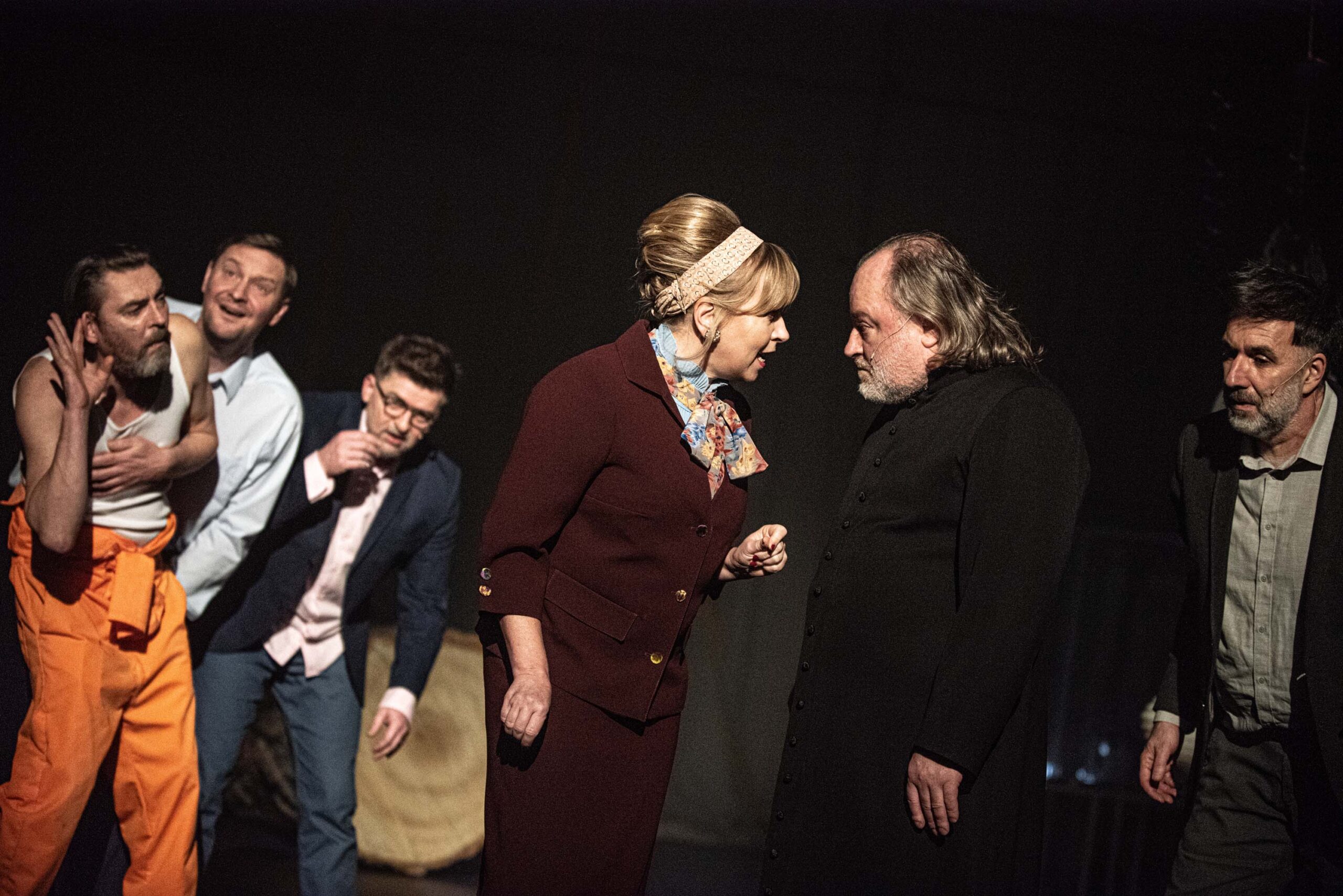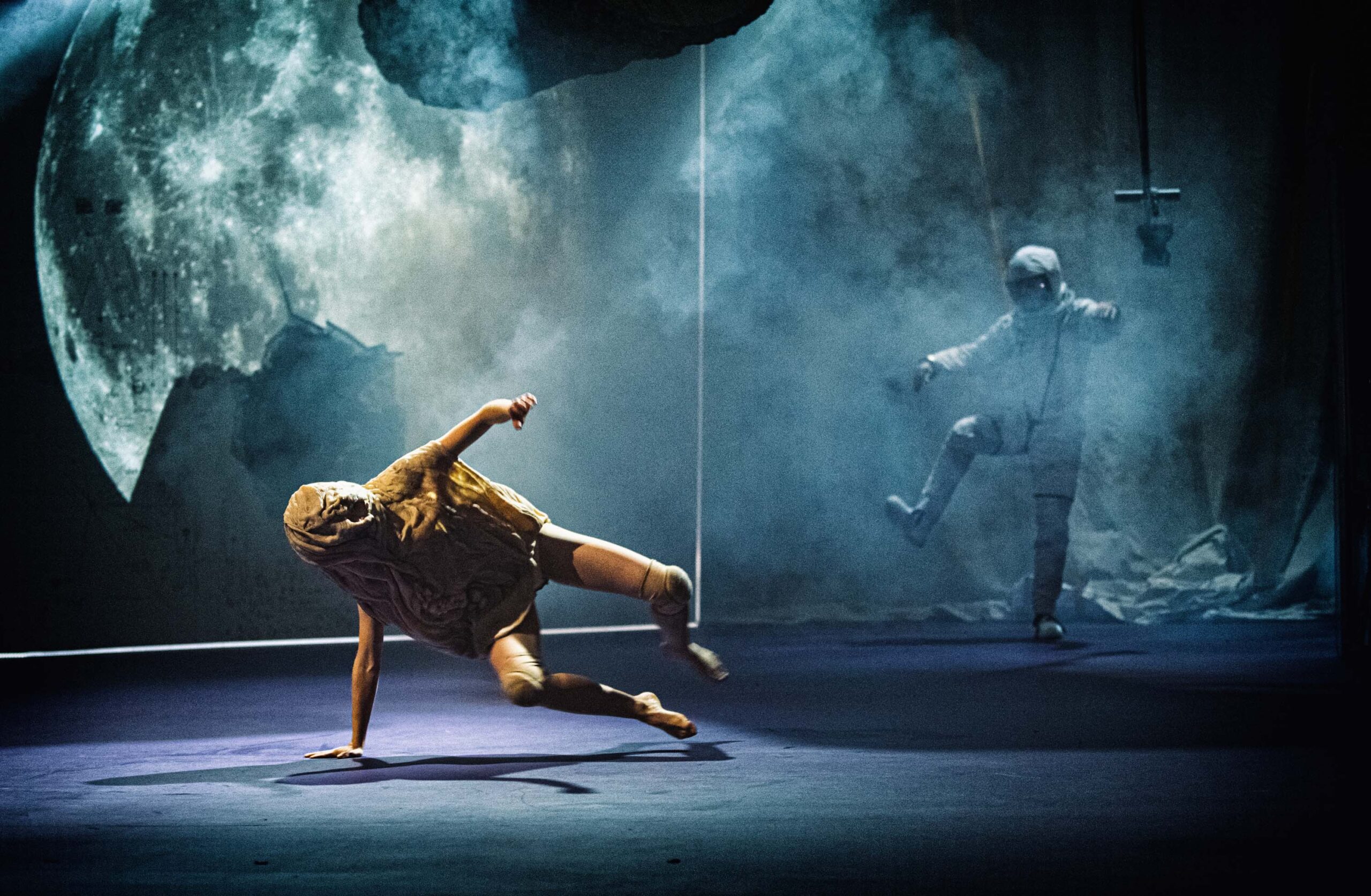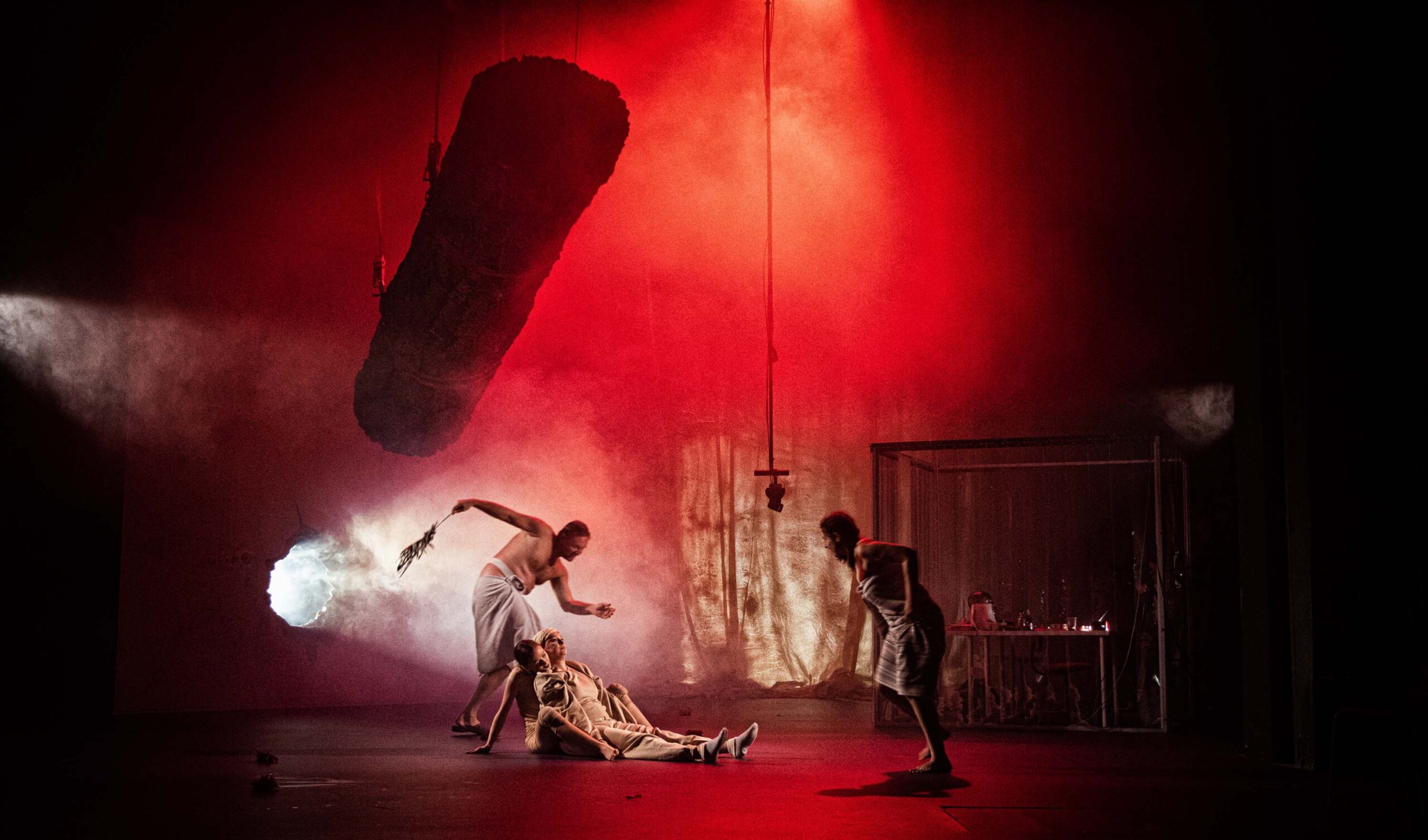Actors
Actors
Iwona Bielska
Graduate of the Acting Faculty of the Ludwik Solski State Theatre School in Krakow (1977)
“Bielska has returned to the Stary Theatre after a long hiatus. She has nothing to prove. Anyone who has been to a production by Krystian Lupa or Mikołaj Grabowski is well aware of her talent. She can be faultless on stage, as we will have the chance to see once more.” (Dawid Dudko, kultura.onet.pl)
She made her debut in 1977 as Hanka in “The Morality of Mrs. Dulska” directed by Jerzy Krasowski on the Juliusz Słowacki Theatre stage. In 2002 she began working at the National Stary Theatre, where she can be admired to this day in pieces by Paweł Miśkiewicz—“The Demons: A Play about Drinking Tea” and “Gulliver’s Travels,” where “she is silent for nearly the entire first part, while her friends prattle on to each other. She finally stops biting her tongue and erupts. She accuses the society (not only the Poles) of being false and cynical. (…) In the end her voice quakes, her body goes taut as a bow. It has been a long time since I saw such an authentically harrowing monologue (…) in the theatre.” (Dawid Dutko, kultura.onet.pl)
She has worked with Stu Theatre for years, creating many marvellous roles and receiving many awards: Queen Elisabeth I in Vilar’s “The Queen and Shakespeare,” Marta in Albee’s “Who’s Afraid of Virginia Woolf,” and a character in Kitowicz’s legendary “Description of Customs,” all directed by Mikołaj Grabowski, joining a few other actors to create a “theatre family” under his direction. The artists toured Poland and Europe with their productions, drawing from the old tradition of the wandering troupe. The creative personality of Mikołaj Grabowski, his theatrical choices, going against the grain of tradition, unapologetically dismantling national myths and stereotypes, had a major impact on her acting, which was passionate and uncompromising.
Iwona Bielska is evocative and passionate, she combines a mad temperament with refined precision, graceful femininity with keen character insights. Her first years on stage were filled with roles of romantic heroines whose statuesque beauty and expressiveness gave her a special power: the passionate Ophelia swept by madness in Shakespeare’s “Hamlet” directed by Jerzy Krasowski, the tragic love and madness of Kornelia in the famous staging of Krasiński’s “Irydion” directed by Mikołaj Grabowski, and Job’s Wife crushed by the weight of catastrophes and despair in “Job according to the Book of Job” directed by Krzysztof Babicki. Just as central to her repertoire were absurd and grotesque characters, especially in Stanisław Ignacy Witkiewicz’s dramas: she played Zofia Kremlińska née Abencerage in her graduation performance of “Dandies and Frumps,” directed by Krystian Lupa, Countess Spika Tremendoza in “They” directed by Rudolf Zioło, and Hela Bertz in “Farewell to Autumn” under Mikołaj Grabowski’s direction. Vitality, a sense of humour, the courage to be constantly seeking new forms of expression, and masterful precision are traits of Iwona Bielska’s mature acting. In 2002, she triumphed during the Documenta contemporary art festival in Kassel playing the lead in Turini’s “I Love My Country” in German. The seasons she spent at the Stary Theatre bore fruit in outstanding roles and a very diverse repertoire. Going against the grain, Andrzej Wajda created a new vision of Shakespeare’s “Macbeth,” casting her as a Lady Macbeth who was strong and ruthlessly overbearing toward her husband, aging, childless, rapaciously fighting for her last chance in life. Her Mother immersed in ritual in “Zarathustra” gives Krystian Lupa’s philosophical probing a metaphysical edge. Work with Paweł Miśkiewicz opened up new, bold realms of her complex acting. Tragic in her ribald humour and grotesquely marked by illness, her Mrs. Zucker in Dea Loher’s “Innocence,” her Woman falling from ceiling/heavens in the hybrid world of Schimmelpfennig’s “Before/After,” and the quintessence of her acting, her Teresa in Canetti’s “Auto da fé,” performed in a virtuosic duo with Jan Peszek, or her bitter, self-effacing Arkadina in Chekhov’s “The Seagull” are achievements of the highest order in the modern Polish theatre. The actor began her jubilee season in 2007 with the role of the egotistical, complex-ridden Alina in a play written specially for the actors of the Stary Theatre and directed by Peter Zelenka, “Purification.” The following year, Krystian Lupa entrusted her with the role of the maniacal Brigit in his experimental “Factory,” inspired by the life and work of Andy Warhol. She also created a marvellous response to postmodern reality in “The Blue Dress,” produced as part of a project inspired by texts from the Internet in “Blogi.pl.”





